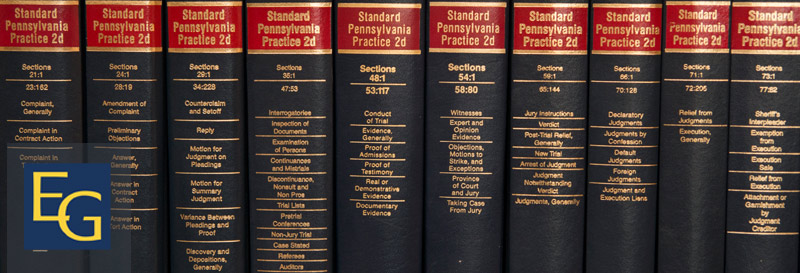Whitewood v. Wolf – Changes to the Landscape of Home Ownership

The United States District Court for the Middle District of Pennsylvania recently addressed the issue of same-sex marriage in Pennsylvania, following the trend of states throughout the US that have confronted the issue. In the wake of the landmark case of Whitewood v. Wolf, marriages between individuals of the same sex may now be conducted within the Commonwealth. Additionally, same-sex marriages conducted in other states throughout the country are now recognized in the Commonwealth. This decision has significant implications on real estate within Pennsylvania. Those married same-sex couples that have taken the leap into home ownership are now afforded the same rights (and duties attendant to those rights) previously limited to opposite-sex married couples.
Among the many considerations same-sex couples face in light of Whitewood is the appropriate ownership structure for purchasing real estate as a married couple. The Whitewood decision also carries with it changes to the realty transfer tax rules of the Commonwealth with respect to married same-sex couples.
Prior to the Whitewood decision, same-sex couples were limited to two forms of real-estate ownership, either “tenants in common” or “joint tenants with rights of survivorship”. Married persons, on the other hand, automatically, as a matter of law, hold real estate in a special form of ownership known as “tenants by the entireties”.
The “tenants by the entireties” ownership structure creates an indivisible interest in real property with a right of survivorship. As a result, each spouse owns the whole property, such that one spouse acting alone cannot convey an interest in the real property to a third-party. This means that, should a spouse acting alone obtain a debt, the property held in a tenancy by the entireties is protected from the debtor-spouse’s creditor. Should the debtor-spouse die, the entire interest transfers to the other spouse, eliminating entirely any interest the creditor had in the property. On the flip-side, if the non-debtor spouse dies, the entire interest transfers to the debtor-spouse, opening the property up to the debtor-spouse’s creditor.
A tenancy by the entireties can only be destroyed by (1) death of one spouse; (2) divorce; or (3) the joint action of both spouses to intentionally dissolve the tenancy. This form of ownership is now the default for married, same-sex couples. Same-sex couples desiring to hold property as, e.g., tenants in common, must demonstrate that intent with clear and convincing evidence to overcome the default presumption. Same-sex couples previously owning property as tenants in common or joint tenants with rights of survivorship must execute a new deed after marriage in order to take advantage of the benefits of the tenancy by entireties structure.
Married same-sex couples are also now afforded the same exclusion from real estate transfer tax previously limited to married opposite-sex couples and certain other familial relationships. This permits one same-sex spouse to now transfer an ownership interest in real property to another, free of real estate transfer taxes. Since Whitewood, if one same-sex spouse owns a home, is married, and decides to transfer an interest in the home to ownership in the entireties, the transaction is excluded from real estate transfer tax.
Whether married or not, all couples must understand the difference between the various forms of property ownership and the ramifications of transferring an interest in property to their partner. Eastburn and Gray’s Real Estate practice group has extensive knowledge in real estate acquisition, holding and disposition, and welcomes the opportunity to advise you and work with you in your next real estate transaction.







